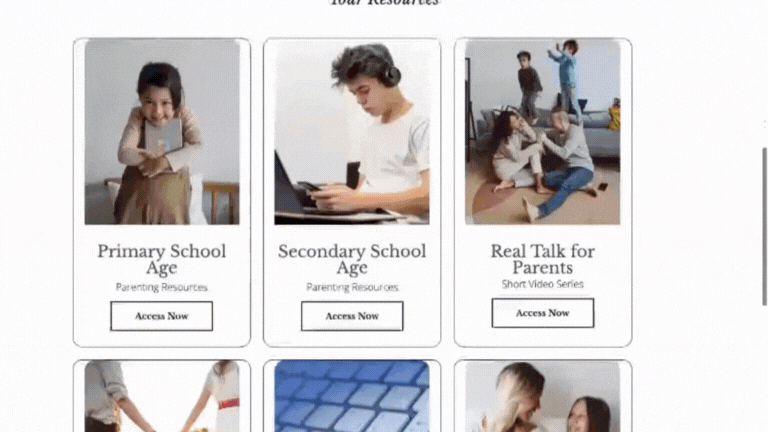Consent has been a hot topic in the media in recent weeks. This attention has largely come about because of a petition launched by Former Sydney school student, Chanel Contos, which advocates for improved education around consent. Already, the petition has collected over 36,000 signatures.
Here at Real Talk, we have welcomed this increased attention on the important topics of consent and respect. Sadly, many commentators are missing some crucial elements of this topic.
Every year we speak to tens of thousands of students about sex and relationships. In our experience, there are 5 crucial (but often overlooked) points about consent that every educator should know:
1) START EARLY, START SIMPLE
Ask young people what they understand “consent” to mean? Many young people really don’t understand the basics, so it’s important to start here. In short, consent is an agreement. It’s a “YES,” freely given.
Education on consent should start early, ideally in primary school or earlier, long before a discussion of sexual consent begins. It starts with teaching protective behaviours and body awareness. In simple terms, “It’s MY body, I can say NO.” It involves teaching children that they should speak up when they feel uncomfortable and that it’s okay to say “no.”
Even with teenagers, keep it simple: An absence of a yes means that someone has not consented. Sexual activity without consent, or if someone is unable to consent, is harmful and against the law.
2) CONSENT AND RESPECT GO TOGETHER
There are some popular videos that make consent simple by comparing it to the drinking tea or riding a bike. These videos simplify the idea of consent, which is good, but we need to be careful not to inadvertently give young people the wrong message.
Consent is super important, but it’s not the only consideration for healthy relationships. To teach it as a stand-alone principle or to suggest that it is “everything”, as the very popular Tea and Consent video does, is dangerous and can lead to unhealthy outcomes.
Put simply, if John wants to perform a sexual act on Sally, and Sally consents, this doesn’t necessarily mean this is a good idea for John or Sally. If John is in a relationship with Jenny, then getting together with Sally is probably going to cause a lot of hurt. If John is just using Sally, but he doesn’t really care about him, then that isn’t healthy either. Even when consent is present, an act can still be harmful and lacking in the dignity that both the sexual act and the people deserve.
Christians and many other traditions believe people have an extreme dignity. Because human beings have dignity, we deserve love. Because people deserve love, we should show them respect. Because we need to show people respect, consent is super important. We show respect by prioritising consent.
When consent is taught it needs to be taught as a way to show respect – for self and for others. When consent is not understood in light of the principles of love, respect and dignity, something important is missing.
3) WE NEED TO EDUCATE ABOUT PORNOGRAPHY
If we want to teach about sexual consent, it’s essential that we are also educating young people about the dangers of pornography. Almost every young person is exposed to pornography and usually long before they become sexually active.
Pornographic material almost always misrepresents the concept of consent or lacks it entirely. In porn, sex is separated from intimacy, people are treated like objects, and unhealthy gender imbalances are reinforced. It is by far the most corrosive curriculum for sexual relationships, but the research tells us that it has become the dominant educator on sexual matters. Pornography is being consumed daily or weekly by most Australian young men.
4) CULTURE CHANGE TAKES TIME
As a country, we have recognised recently that we need to start the conversation and improve education on the topic of consent. However, culture change takes time.
In the absence of healthy rites of initiation, fumbling your way through early sexual encounters has almost become a rite of passage in our culture.
A few years ago, Rugby League player Sam Thiaday was interviewed after his team’s win in a State of Origin match. When asked about the match, he said, “It was a bit like losing your virginity, it wasn't very nice, but we got the job done." This is the kind of role model our young men are looking up to. We will not unwind the cultural portrayal of sex or current masculine mindset quickly.
In addition to this, young people are sexually curious and deep down, they just want to belong. They want to do what they think their peers are doing, and todays social media is peer pressure on steroids. Throw in porn, hormones, alcohol and drugs, and the waters of consent have been totally muddied.
Millions of young people are swimming in a sea of confusion. Let’s make sure we don’t just finger point. It’s time to clean up the ocean.
5) WE NEED TO BE EMPATHETIC LISTENERS WHEN CONSENT ISSUES ARISE
When issues like consent become hot topics of discussion, it can be easy to forget about the individuals whose lives have been profoundly impacted by consent issues and sexual abuse. When confronting this topic, we need to always remain people-focused and be empathetic listeners.
The positive effect of this renewed focus on consent over the past few weeks is that people’s stories are finally getting heard. We need to listen. In our work, members of the Real Talk team have heard many of these stories. We know firsthand how it changes you to hear a person tell their story and to see the impact it has had on their lives. Being heard is just the beginning of a person’s healing journey. Listening provides a baseline for future education.
Right now, as a society, we stand at a crossroads. Each of us has a part to play in changing our culture around consent for the better. Education will be a big part of the solution. When you’re educating your young people about consent, be sure to keep these 5 things in mind.
Want more consent videos and resources. Click HERE!













